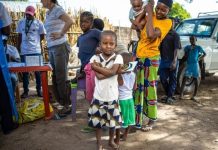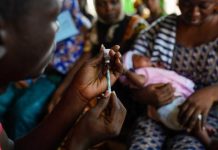We have become victims in a raging storm as Coronavirus created a serious menace and threats in the minds of the people while leaving our Health workers and Leaders in a rather frustrated state with diminishing Hopes. The pandemic has forced us through complicated paths and altered the normal functioning of our societies. This situation has so far led to catastrophic socioeconomic conditions and widespread human, material, economic and environmental effects which affect critical needs and Health conditions of people. If there is a moment when the central Government should fortify it`s end to protect and safeguard the welfare of Gambians, that moment is long overdue.
It is in no small measure that I wish to appreciate the government`s way of diplomacy yet it is now even of greater measure that I urge the government to hold on to this Diplomacy to collaborate with other countries in staging fights against Covid-19.
Consideration of some key National strategies in curbing the crisis could just be a remarkable stance. I want to take this unswerving national responsibility to call on the government of the Gambia to add more incentives for our frontiers in the fight against Covid-19.In building more strategic National plans in the fight against this in invisible enemy, this will not just be an added advantage in defeating the virus but as well a source of hope for the citizenry. I implore the government to do this by putting in place more precautionary measures that will adequately reduce the spread of the virus. Equipping our health sector and providing them with enough testing materials would also be very essential.
The situations have shown the complication involved in detecting patience effectively. As such, it will be paramount if all hospitals in the country (small or big) have an operational capacity in testing COVID-19. The Country’s lack of fund in tackling such a global problem at national level remains obvious. Meanwhile, it’s only through a resilient system that the country can overcome this menace.
This commentary explores two questions in attempting to contribute to an understanding of the complex nature of the pandemic in the Gambia and among many intervening variables that determine unemployment coupled with the propensity for economic crisis. The first question touches on the relationship between unemployment in the Gambia and social cohesion. Second, is the country prepared for its recovery in the post Corona virus period?. It also explores how worsening unemployment increases a country’s predisposition to political instability. According to World Bank report from a data collected across 48 countries in Africa which include 90 civic society organizations, “Africa has the largest number of young people in the World with an estimated number of 200 million young people between the ages of 15 to 24 that are unemployed in Africa”. Evidently, 60% of our population in the Gambia is youth with an increased rate of unemployment. Is the Gambia prepared to change the narrative amid this global pandemic?
*The Gambia in the post COVID-19*
For a systematic and successful Political and Economic recovery the government should update national youth strategies in collaboration with youth stakeholders to translate the Country’s political commitment into actionable programmes.
Partnering with national statistical offices and research institute to gather disaggregated evidence on the impact of the pandemic by age groups so as to track inequalities and inform decision-making ( in addition to other identity factors such as sex, educational and socio-economical backgrounds and employment status).
They should also have the ability in leveraging young people’s current mobilization in mitigating the crisis through existing mechanisms, tools and platforms ( e.g. the use of digital tools and data) to build resilience in societies against future shocks and disasters.
Aligning short-term emergency responses with investments into long-term economic, social and environmental objectives to ensure the well-being of future generations is a necessity.
Government should be cognizant of the distribution needs and importance of enough masks across all regions within the length and breadth of the country. This, with strict regulations, applied to monitor the consequences in everyday life especially with institutional support. The police will be more useful in the implementation of such regulations.
More to the points, the government should also think about proving targeted policies and services for the most vulnerable youth populations, including or training young migrants; homeless youth, young women, adolescents and children facing increased risks of domestic violence.
Finally, the government should open doors and invite experts, Political Leaders, youth organisations NGOs and academics from all walks of life should put down certain policies that will help to pull the country out of recession.
In conclusion, I want to thank the President of the Republic of The Gambia for his continuous efforts and concern in curbing the crisis and the enforcements his government continue to put in place in curbing the crisis. We thank our Health frontline workers for their utmost service and respect for national duties. The journey might seem long but as we stand next to each other in this fight, hope will certainly not run out until this becomes history.
Kemo Fatty, a Senior year Political Science Student University of The Gambia
Leader, UTG-Solutionist Group.





















